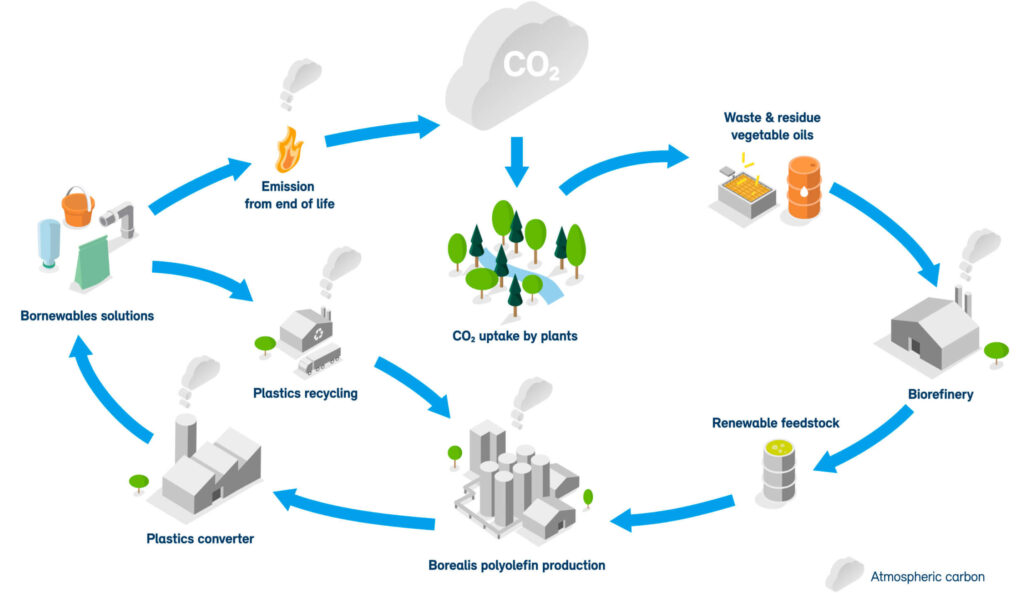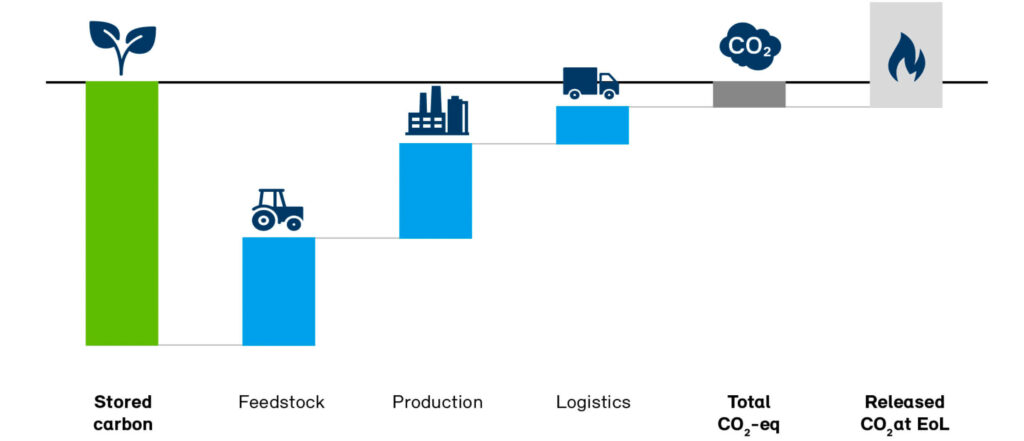Biogenic Carbon
The Bornewables™ and Borvida™ range of products are made using sustainably sourced renewable feedstocks derived solely from waste and residue vegetable oils, such as used cooking oil and residues from vegetable oil processing. Their use contributes to the circular economy by helping to decouple from the use of fossil feedstocks.
During the growth phase of the plant it absorbs carbon dioxide (CO2) from the atmosphere and stores it in the biomass of the plant. This biomass is then used to produce the feedstock for the production of our chemicals and plastics.

Reducing carbon footprint with the Bornewables™
In accordance with ISO14067:2018, removal of CO2 from the atmosphere is characterised with −1 kg CO2/kg CO2 in the calculation of the carbon footprint. During further processing steps of the biomass and in the production process of our chemicals and polymers, fossil CO2 emissions are released as well as part of the biogenic CO2 from the biomass. The balance of the biogenic CO2 remains in the product at Borealis’ gate.
Neoni provides the results of the partial carbon footprint, meaning it does not include the use phase and / or end of life (EoL) where this biogenic carbon content (1) might be released.
A cradle-to-gate Life Cycle Assessment (LCA) to assess the environmental profile of our products using renewable feedstocks compared to the fossil equivalent feedstock produced at our sites in Finland, Sweden and Belgium was performed and critically reviewed in accordance with ISO14040:2006 and ISO14044:2006.
For more information on the LCA report or understanding about the biogenic carbon content (1), please reach out to us.

Footnotes
- based on Mass Balance